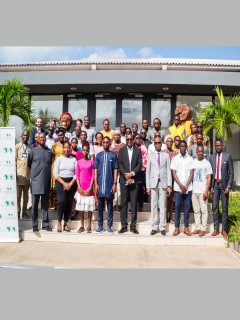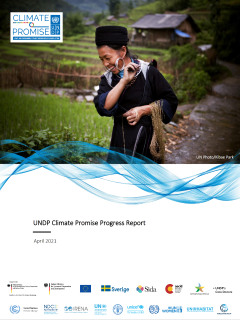
Unlocking the Potential of Nationally Determined Contributions in Africa through Circular Economy.
During a side event at the African Development Bank’s Annual Meetings on Tuesday, May 28, themed "Climate Change and Green Growth: Working Towards a Sustainable Climate and Conscious Future," Professor Anthony Nyong, Climate Change and Green Growth Director at the African Development Bank, highlighted the significant market potential of Nationally Determined Contributions (NDCs).
He remarked, “One can see it as a financial waste, but it’s an investment potential” Emphasizing the substantial economic opportunities, he pointed out that NDC investments in Africa are estimated to require $3 trillion by 2030, an opportunity for the private sector and investors in Africa.
To capitalize on this potential, the Africa NDC Hub, hosted by the African Development Bank, is designed to facilitate the implementation of NDCs across the continent. By leveraging resources and expertise of partner institutions, the Hub provides critical support to African countries, enabling them to meet their climate commitments under the Paris Agreement.
One effective strategy for harnessing the NDC potential and meeting its targets is to couple NDCs with a circular economy roadmap. Benin is among the African countries adopting this approach.
Benin: Harnessing Circular Economy to Meet NDC Goals
On May 15, 2024, Benin officially launched its National Circular Economy Roadmap (NCER) project, a significant stride supported by the African Development Bank’s Africa Circular Economy Facility. The Benin NCER aims to bolster the country’s NDCs, which are critical for meeting international climate commitments under the Paris Agreement.
Benin faces substantial challenges due to climate change, particularly affecting its agricultural sector and causing rampant deforestation. The NCER project is crucial in addressing these challenges by promoting sustainable resource use and energy consumption, aligning with the country’s NDC targets.
The primary goals of Benin’s NDCs include achieving a 20% reduction in greenhouse gas emissions by 2030 compared to the business-as-usual scenario while increasing renewable energy usage by 20% to 30% by 2035. The country also aims to reduce CO2 emissions by 7.8% by 2045.
To meet these objectives, Benin’s project, submitted to the Africa Circular Economy Facility, aims to establish a comprehensive policy framework that promotes the circular economy and renewable energy, thereby enhancing the country’s climate resilience. Additionally, it seeks to develop policies that create a more attractive environment for investors in the renewable energy sector.
Coupling Circular Economy roadmap with NDCs: the Key Benefits
Integrating the circular economy roadmap with NDCs amplifies climate action and sustainability efforts:
- Enhanced Climate Ambition: Current NDCs are projected to lead to a 2.1-2.9°C temperature rise by century's end. Circular economy approaches can lower emissions by considering the full life cycle of materials, from extraction to disposal.
- Economic Growth and Job Creation: Circular economy solutions open new markets and create jobs, fostering sustainable economic growth.
- Ecosystem Resilience: Integrating restorative and regenerative dimensions reduces ecosystem pressure, building resilience against climate impacts.
As of 2023, only 27% of NDCs mention the circular economy, mostly focusing on waste management. There is a significant opportunity to expand this focus to other sectors, such as agriculture, industry, and transport, with specific, actionable strategies.
Contact: Africa Circular Economy Alliance (ACEA)

















